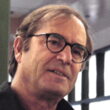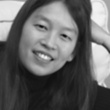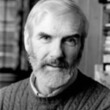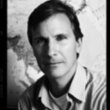Oracle Bones: A Journey Through Time in China
(Libby/OverDrive eBook, Kindle)
Available Platforms
Description
“Hessler has stepped off the treadmill of events-driven journalism to produce one of the most profoundly original books about China since, well, since his first book, River Town. . . . . Everywhere, the book is shot through with sensitivity, insight, and rollicking good humor too.” —The Economist
“Oracle Bones will firmly establish Mr. Hessler as one of the Western world’s most thoughtful writers on modern China. . . . A page-turner with great insight into Chinese society. . . . A richly humanistic portrayal.” —Wall Street Journal
The acclaimed author of River Town offers us a rare portrait, both intimate and epic, of twenty-first century China.
A century ago, outsiders saw China as a place where nothing ever changes. Today the country has become one of the most dynamic regions on earth. In Oracle Bones, Peter Hessler explores the human side of China's transformation, viewing modern-day China and its growing links to the Western world through the lives of a handful of ordinary people. In a narrative that gracefully moves between the ancient and the present, the East and the West, Hessler captures the soul of a country that is undergoing a momentous change before our eyes.
More Details
Excerpt
Similar Titles From NoveList
Similar Authors From NoveList
Published Reviews
Booklist Review
Hessler, who has lived in China for the past nine years and is the Beijing correspondent for the New Yorker, has written a fascinating and frequently moving account of life in modern China as seen through the eyes of an eclectic group of people, including a minority Uighur, who operates on the fringe of legality, a factory worker, a teacher, a film director, and a scholar who was destroyed by the Cultural Revolution. All of them seem to function as outsiders as they struggle to cope with a nation that is undergoing monumental change. Hessler seamlessly interweaves their stories with the broader context of Chinese contemporary events, and he ties those events effectively with examinations of history, archaeological excavations, and the Chinese struggle to redefine national identity. This is an important and informative work offering a unique perspective on where China may be headed. --Jay Freeman Copyright 2006 Booklist
Publisher's Weekly Review
Hessler, who first wrote about China in his 2001 bestseller, River Town, a portrait of his Peace Corps years in Fuling, continues his conflicted affair with that complex country in a second book that reflects the maturity of time and experience. Having lived in China for a decade now, fluent in Mandarin and working as a correspondent in Beijing, Hessler displays impressive knowledge, research and personal encounters as he brings the country's peoples, foibles and history into sharp focus. He frames his narrative with short chapters about Chinese artifacts: the underground city being excavated at Anyang; the oracle bones of the title ("inscriptions on shell and bone" considered the earliest known writing in East Asia); and he pays particular attention to how language affects culture, often using Chinese characters and symbols to make a point. A talented writer and journalist, Hessler has courage-he's undercover at the Falun Gong demonstrations in Tiananmen Square and in the middle of anti-American protests in Nanjing after the Chinese embassy bombings in Belgrade-and a sense of humor (the Nanjing rioters attack a statue of Ronald McDonald since Nanjing has no embassies). The tales of his Fuling students' adventures in the new China's boom towns; the Uighur trader, an ethnic minority from China's western border, who gets asylum after entering the U.S. with jiade (false) documents; the oracle bones scholar Chen Mengjia, who committed suicide during the Cultural Revolution-all add a seductive element of human interest. There's little information available in China, we learn, but Hessler gets the stories that no one talks about and delivers them in a personal study that informs, entertains and mesmerizes. Everyone in the Western world should read this book. (May) (c) Copyright PWxyz, LLC. All rights reserved
Library Journal Review
Beijing correspondent for The New Yorker, Hessler has lived in China for the last nine years. He is deeply informed and writes with exceptional lucidity, choosing vivid, specific local topics whose broad significance he expertly shows. His memoir of his Peace Corps teaching experience, River Town: Two Years on the Yangtze, is a minor classic. His new book is a lovely take on a larger topic, the interaction of China with the West, told through craftily interwoven vignettes with cultural, political, and social resonance. In one series of vignettes, he follows former students from his Peace Corps days. Some are working in foreign-owned factories, while others are moving up the social ladder. In another series, he encapsulates the history of Chinese-American relations through the story of Chen Mengjia, China's leading scholar on the ancient oracle bones, which are over 3000 years old and revealed the earliest form of Chinese writing. Chen came to the Art Institute of Chicago in the 1940s, returned to China to be politically ostracized as a rightist, and was only recently rehabilitated, many years after his suicide. Along the way, Hessler introduces debates on the nature of the Chinese language and the scholars who have carried on the debate. Recommended for all libraries with medium or larger collections on China.-Charles W. Hayford, Northwestern Univ., Evanston, IL (c) Copyright 2010. Library Journals LLC, a wholly owned subsidiary of Media Source, Inc. No redistribution permitted.
Kirkus Book Review
China is a country both ancient and brand-new--and, to judge by this revealing portrait, likely to be increasingly at odds with the U.S. Social scientists, writes New Yorker correspondent and longtime China resident Hessler (River Town, 2001), describe the 1990s as China's true Industrial Revolution, a time when more than 100 million Chinese moved from the countryside to booming industrial cities along the southern coast, "the largest peaceful migration in human history." The experience has been both dislocating and empowering, as China increasingly emerges as a major power economically and a geopolitical force--often squarely against the U.S. So it is that Hessler opens with the nationwide demonstrations and riots when an American bomber destroyed China's embassy in Belgrade; not hesitating to identify himself as an American journalist, he is swept along by a huge Beijing crowd that chants, in turn, "Don't eat Kentucky," "Don't eat McDonald's" and "Down with American imperialism," just as in the heyday of the Cultural Revolution, though now, one Chinese man remarks, "bin Laden is even more famous than Mao Zedong." Against this modern swirl, Hessler looks at a distant past whose details are now emerging: the origins of ideographic writing fire-hardened "oracle bones," long-standing rivalries among various ethnic and economic groups in China's backwater, such as the Uighurs of Xinjiang and the country folk of Inner Mongolia. Hessler's fascination with things past does not always add up, but the temporal back-and-forth turns up some interesting phenomena; for instance, many young people, now adrift in a nation with an ideology grounded in money-making and materialism, are turning to the classics to get their bearings--and sometimes never finding them, as when one young man tells his sister "that if she read Mencius, she would become more beautiful, because the truth would shine through in her face." A remarkable travelogue documenting aspects of a country still little understood. Copyright ©Kirkus Reviews, used with permission.
Booklist Reviews
Hessler, who has lived in China for the past nine years and is the Beijing correspondent for the New Yorker, has written a fascinating and frequently moving account of life in modern China as seen through the eyes of an eclectic group of people, including a minority Uighur, who operates on the fringe of legality, a factory worker, a teacher, a film director, and a scholar who was destroyed by the Cultural Revolution. All of them seem to function as outsiders as they struggle to cope with a nation that is undergoing monumental change. Hessler seamlessly interweaves their stories with the broader context of Chinese contemporary events, and he ties those events effectively with examinations of history, archaeological excavations, and the Chinese struggle to redefine national identity. This is an important and informative work offering a unique perspective on where China may be headed. ((Reviewed April 15, 2006)) Copyright 2006 Booklist Reviews.
Library Journal Reviews
Beijing correspondent for The New Yorker , Hessler has lived in China for the last nine years. He is deeply informed and writes with exceptional lucidity, choosing vivid, specific local topics whose broad significance he expertly shows. His memoir of his Peace Corps teaching experience, River Town: Two Years on the Yangtze , is a minor classic. His new book is a lovely take on a larger topic, the interaction of China with the West, told through craftily interwoven vignettes with cultural, political, and social resonance. In one series of vignettes, he follows former students from his Peace Corps days. Some are working in foreign-owned factories, while others are moving up the social ladder. In another series, he encapsulates the history of Chinese-American relations through the story of Chen Mengjia, China's leading scholar on the ancient oracle bones, which are over 3000 years old and revealed the earliest form of Chinese writing. Chen came to the Art Institute of Chicago in the 1940s, returned to China to be politically ostracized as a rightist, and was only recently rehabilitated, many years after his suicide. Along the way, Hessler introduces debates on the nature of the Chinese language and the scholars who have carried on the debate. Recommended for all libraries with medium or larger collections on China.--Charles W. Hayford, Northwestern Univ., Evanston, IL
[Page 93]. Copyright 2006 Reed Business Information.Publishers Weekly Reviews
Hessler, who first wrote about China in his 2001 bestseller, River Town , a portrait of his Peace Corps years in Fuling, continues his conflicted affair with that complex country in a second book that reflects the maturity of time and experience. Having lived in China for a decade now, fluent in Mandarin and working as a correspondent in Beijing, Hessler displays impressive knowledge, research and personal encounters as he brings the country's peoples, foibles and history into sharp focus. He frames his narrative with short chapters about Chinese artifacts: the underground city being excavated at Anyang; the oracle bones of the title ("inscriptions on shell and bone" considered the earliest known writing in East Asia); and he pays particular attention to how language affects culture, often using Chinese characters and symbols to make a point.
A talented writer and journalist, Hessler has courage--he's undercover at the Falun Gong demonstrations in Tiananmen Square and in the middle of anti-American protests in Nanjing after the Chinese embassy bombings in Belgrade--and a sense of humor (the Nanjing rioters attack a statue of Ronald McDonald since Nanjing has no embassies). The tales of his Fuling students' adventures in the new China's boom towns; the Uighur trader, an ethnic minority from China's western border, who gets asylum after entering the U.S. with jiade (false) documents; the oracle bones scholar Chen Mengjia, who committed suicide during the Cultural Revolution--all add a seductive element of human interest.
There's little information available in China, we learn, but Hessler gets the stories that no one talks about and delivers them in a personal study that informs, entertains and mesmerizes. Everyone in the Western world should read this book. (May)
[Page 45]. Copyright 2006 Reed Business Information.Reviews from GoodReads
Citations
Hessler, P. (2009). Oracle Bones: A Journey Through Time in China . HarperCollins.
Chicago / Turabian - Author Date Citation, 17th Edition (style guide)Hessler, Peter. 2009. Oracle Bones: A Journey Through Time in China. HarperCollins.
Chicago / Turabian - Humanities (Notes and Bibliography) Citation, 17th Edition (style guide)Hessler, Peter. Oracle Bones: A Journey Through Time in China HarperCollins, 2009.
Harvard Citation (style guide)Hessler, P. (2009). Oracle bones: a journey through time in china. HarperCollins.
MLA Citation, 9th Edition (style guide)Hessler, Peter. Oracle Bones: A Journey Through Time in China HarperCollins, 2009.
Copy Details
| Collection | Owned | Available | Number of Holds |
|---|---|---|---|
| Libby | 2 | 2 | 0 |




































